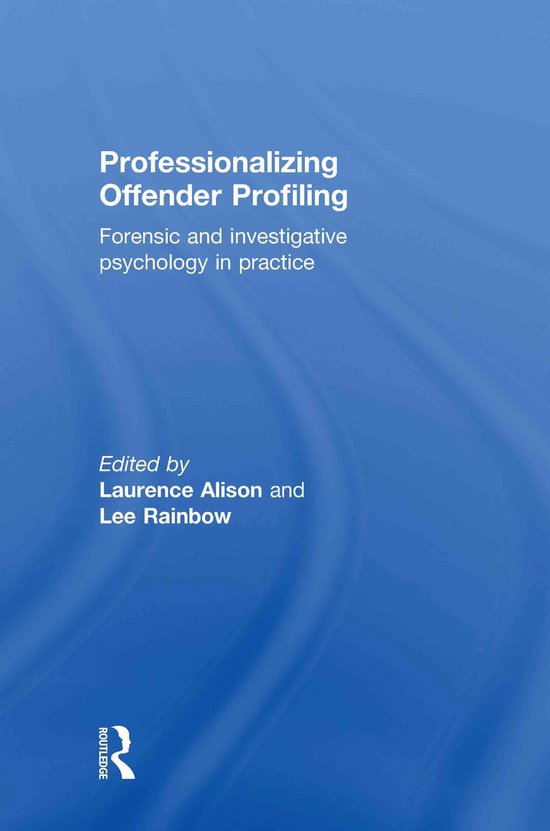
Investigative Psychology
Spearheaded by David Canter and his associates, the new discipline of Investigative Psychology emerged out of a quarter century of research and involvement in many actual cases.
This ground-breaking text is the frst to provide a detailed overview of the field, from the earliest work through to recent studies, including descriptions of previously unpublished internal reports. Crucially it provides a framework for students to explore this exciting terrain, combining Narrative Theory and an Action Systems framework.
Investigative Psychology features:
- The full range of crimes from fraud to terrorism, including burglary, serial killing, arson, rape and organised crime.
- Important methodologies including multi-dimensional scaling and the Radex approach as well as Social Network Analysis.
- Geographical Offender Profiling, supported by detailed analysis of the underlying psychological processes that make this such a valuable investigative decision support tool.
- The full range of investigative activities, including effective information collection, detecting deception and the development of decision support systems.
In effect, this text introduces an exciting new paradigm for a wide range of psychological contributions to all forms of investigation within and outside of law enforcement. Each chapter has actual cases and quotations from offenders and ends with questions for discussion and research. This is a valuable text for undergraduate and postgraduate courses in Applied and Forensic Psychology, Criminology, Socio-Legal Studies and related disciplines.
Visit the companion website at www.wileyeurope.com/college/canter for teaching resources and student resources on research methodologies linked to the book.
This ground-breaking text is the first to provide a detailed overview of Investigative Psychology, from the earliest work through to recent studies, including descriptions of previously unpublished internal reports. Crucially it provides a framework for students to explore this exciting terrain, combining Narrative Theory and an Action Systems framework. It includes empirically tested models for Offender Profiling and guidance for investigations, as well as an agenda for research in Investigative Psychology.
Investigative Psychology features:
- The full range of crimes from fraud to terrorism, including burglary, serial killing, arson, rape, and organised crime.
- Important methodologies including multi-dimensional scaling and the Radex approach as well as Social Network Analysis.
- Geographical Offender Profiling, supported by detailed analysis of the underlying psychological processes that make this such a valuable investigative decision support tool.
- The full range of investigative activities, including effective information collection, detecting deception and the development of decision support systems.
In effect, this text introduces an exciting new paradigm for a wide range of psychological contributions to all forms of investigation within and outside of law enforcement. Each chapter has actual cases and quotations from offenders and ends with questions for discussion and research, making this a valuable text for undergraduate and postgraduate courses in Applied and Forensic Psychology, Criminology, Socio-Legal Studies and related disciplines.
| Auteur | | David V. Canter |
| Taal | | Engels |
| Type | | Paperback |
| Categorie | | Mens & Maatschappij |





